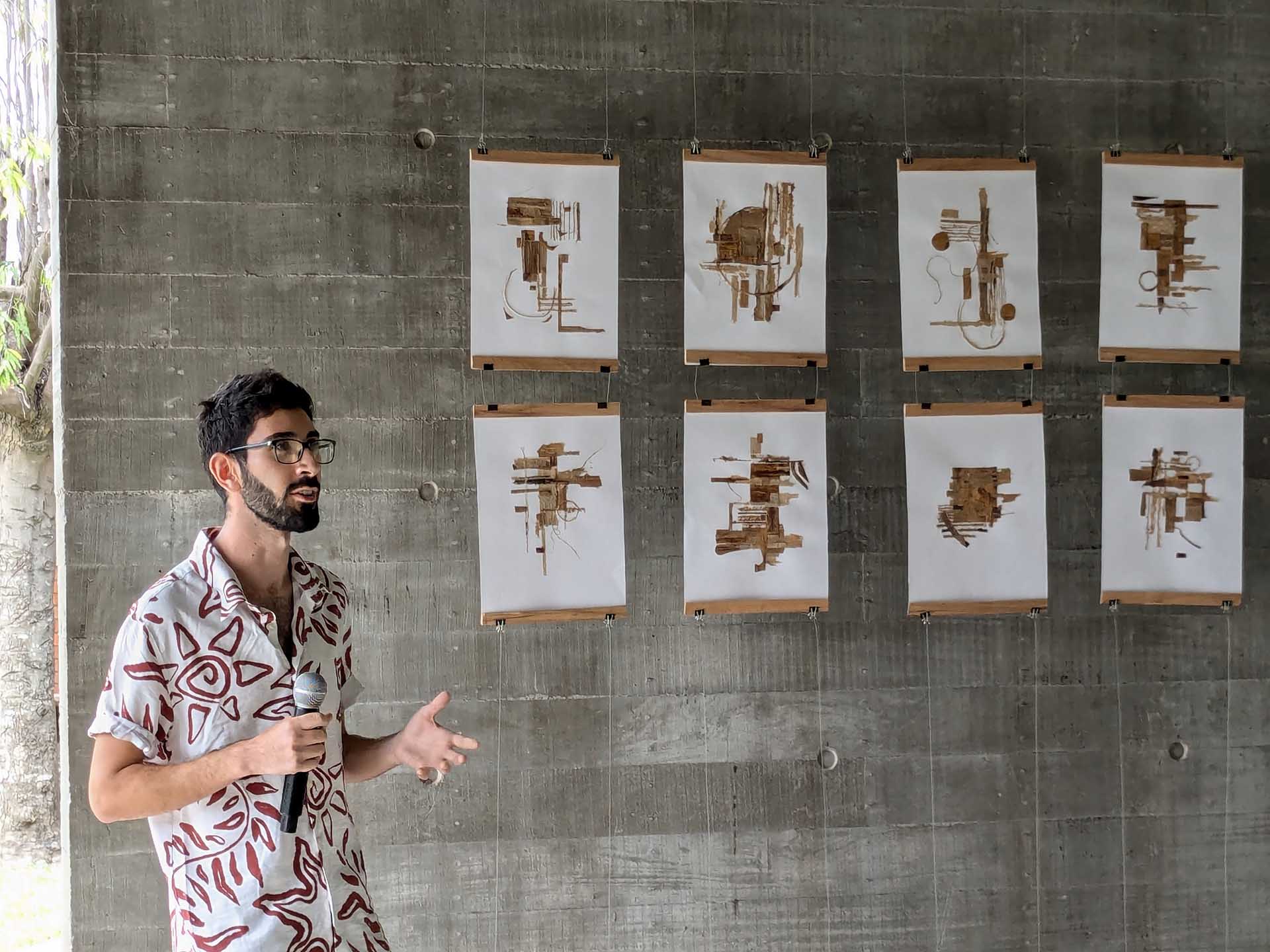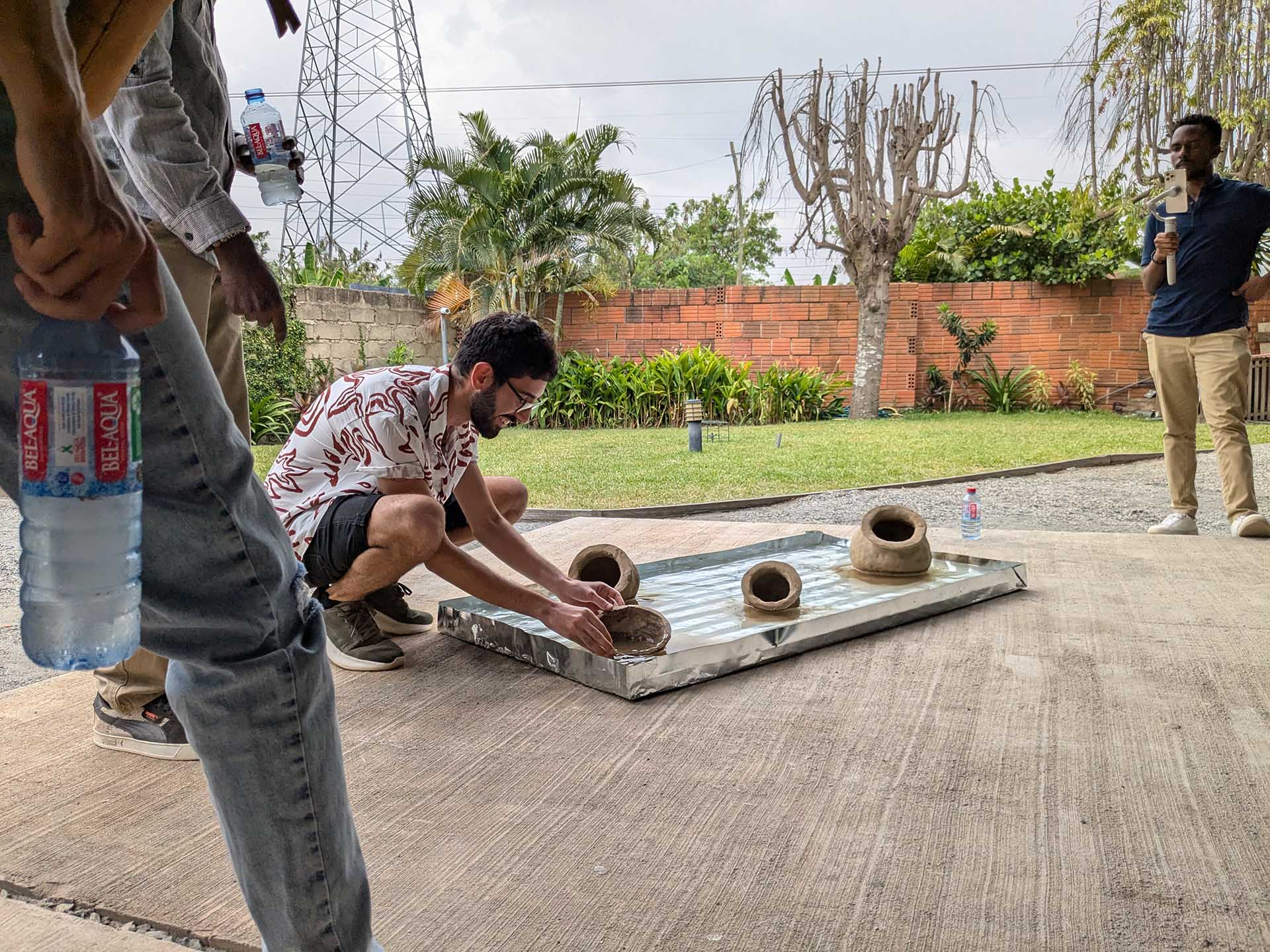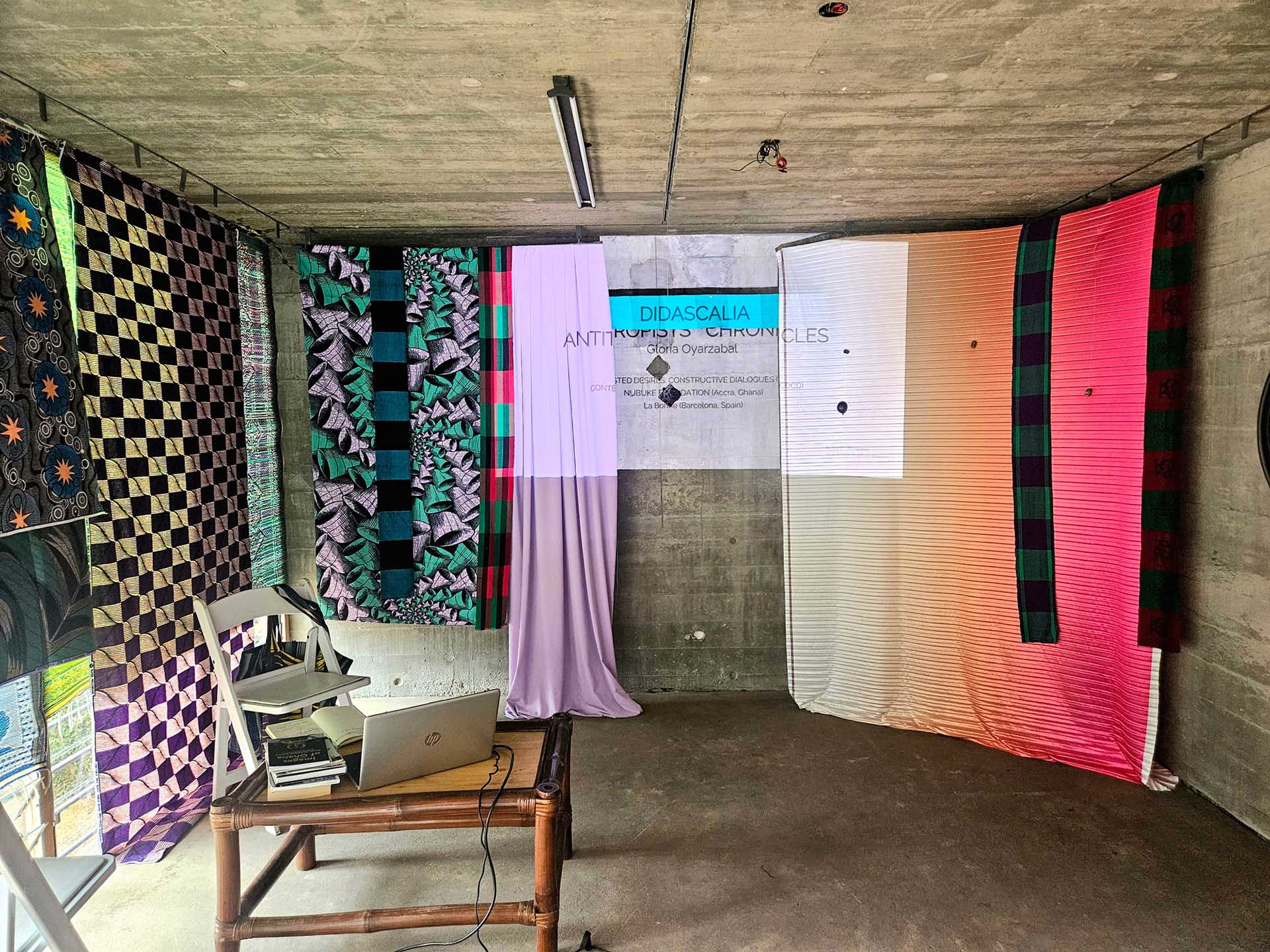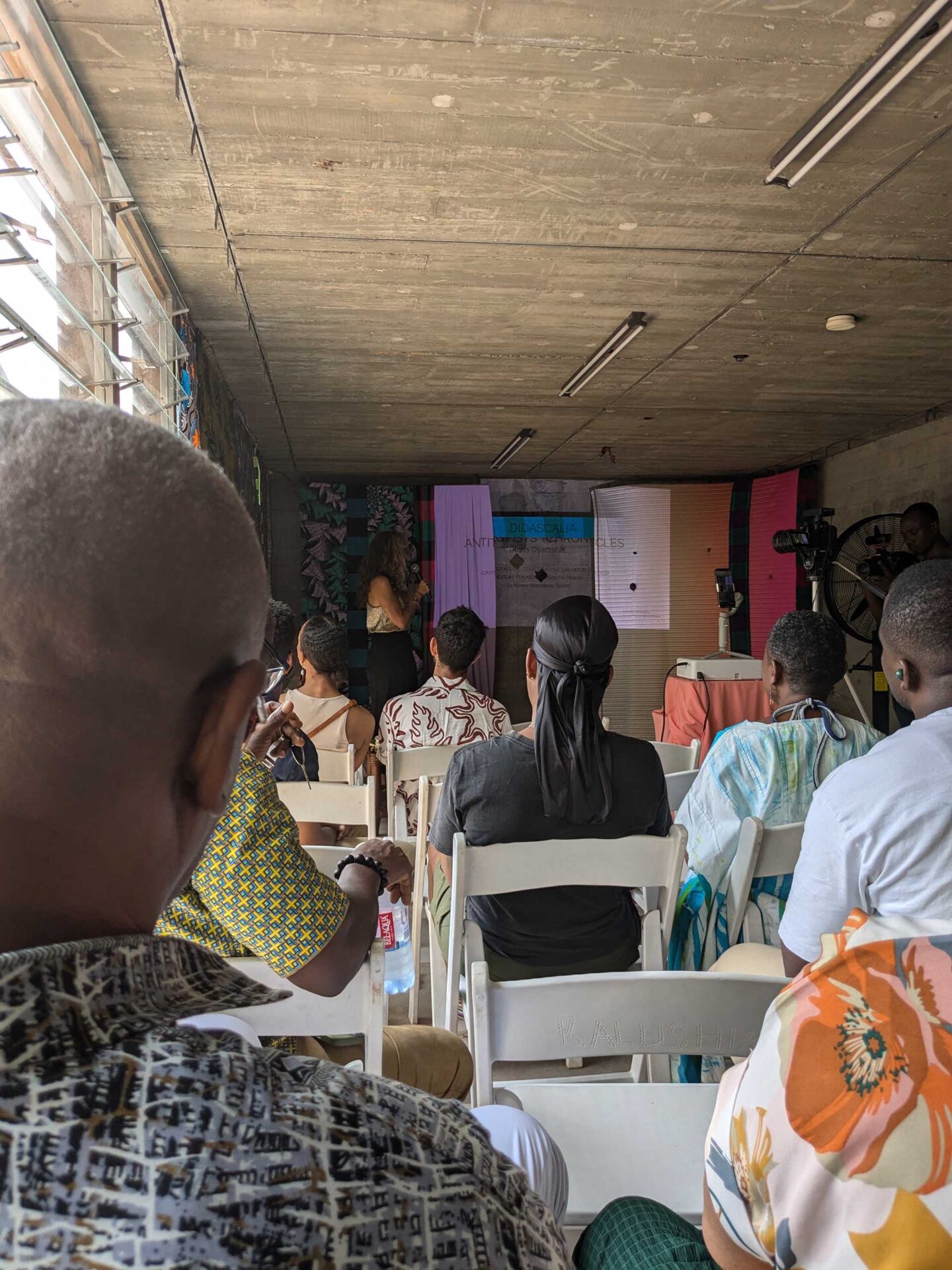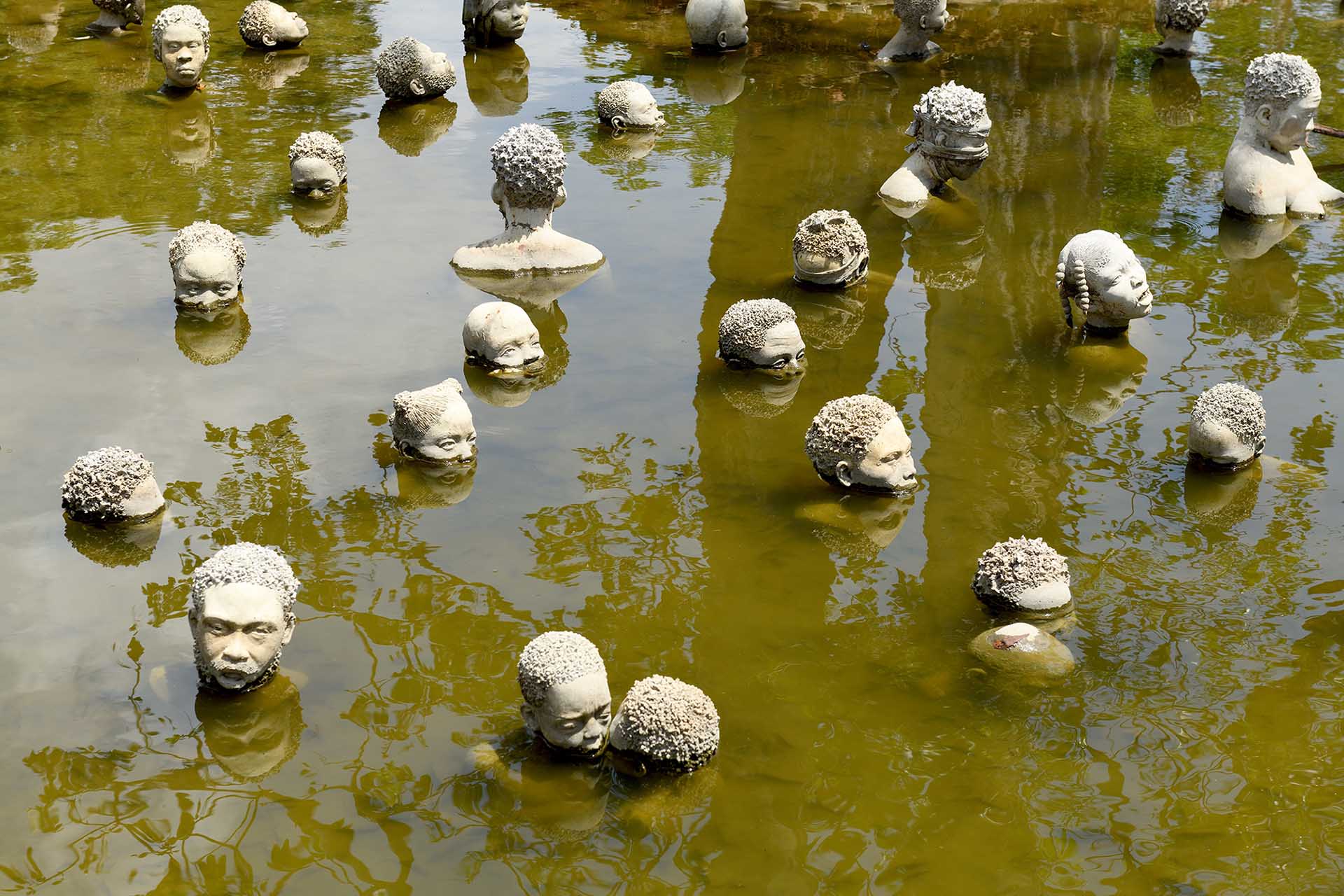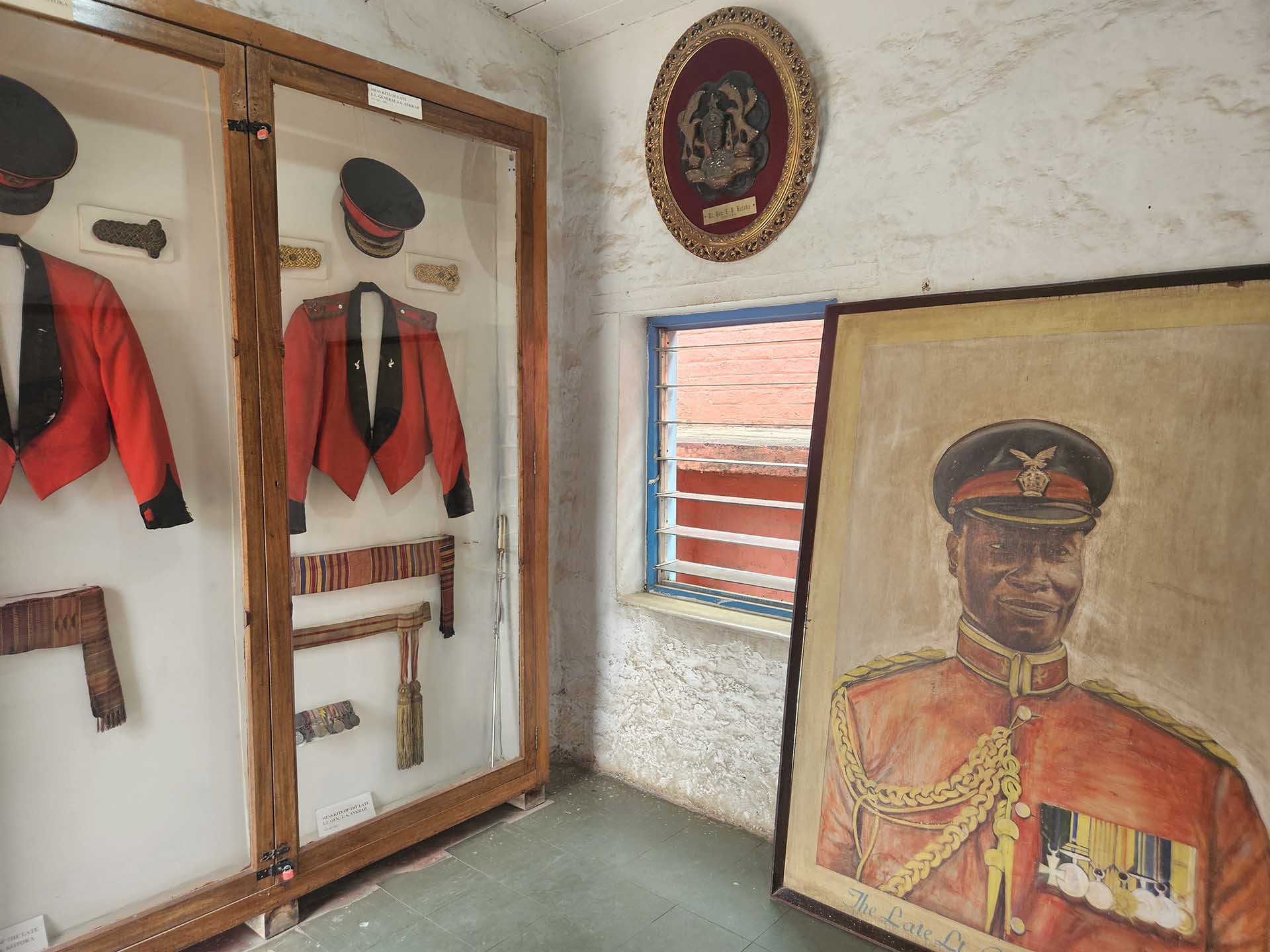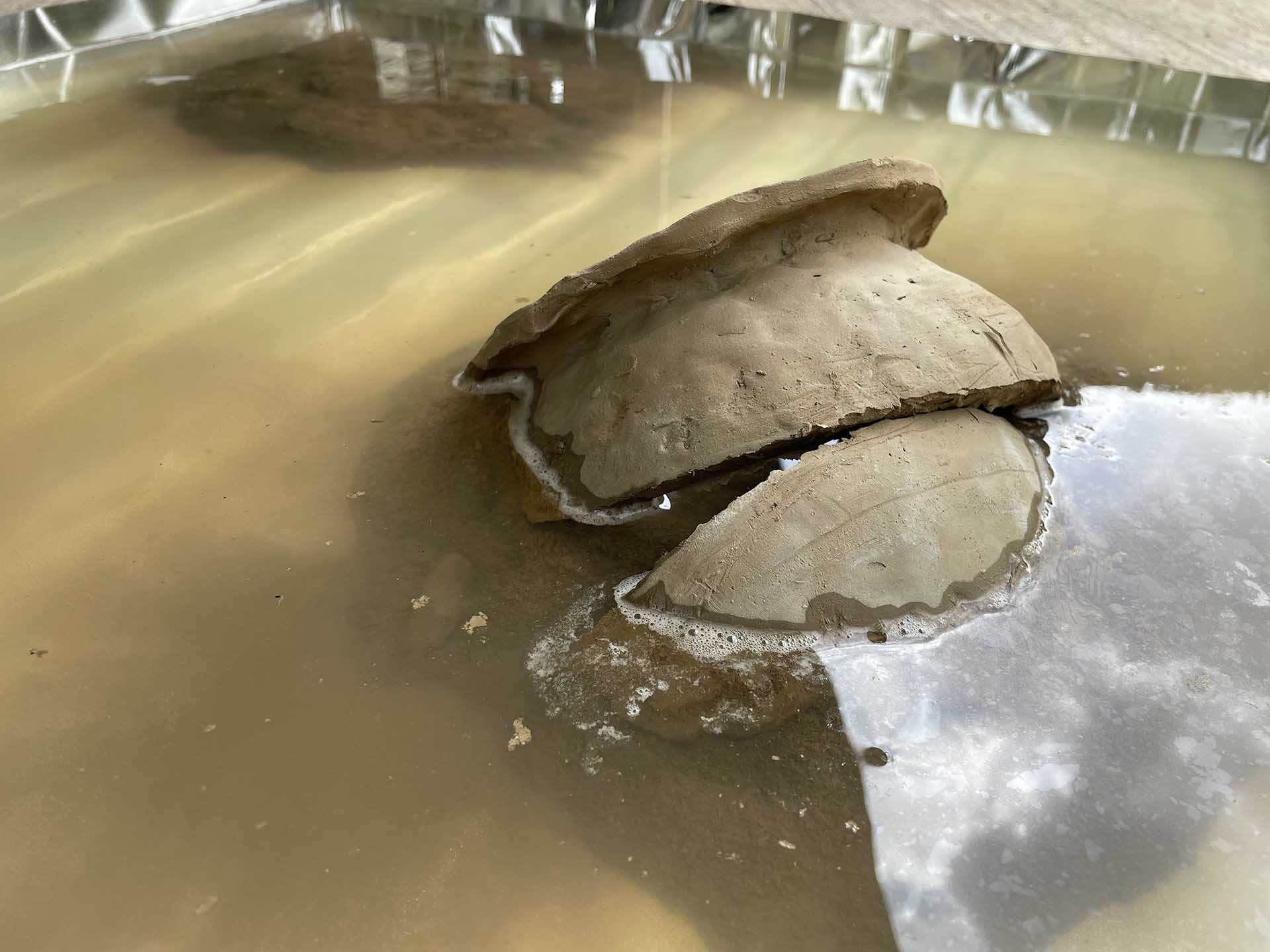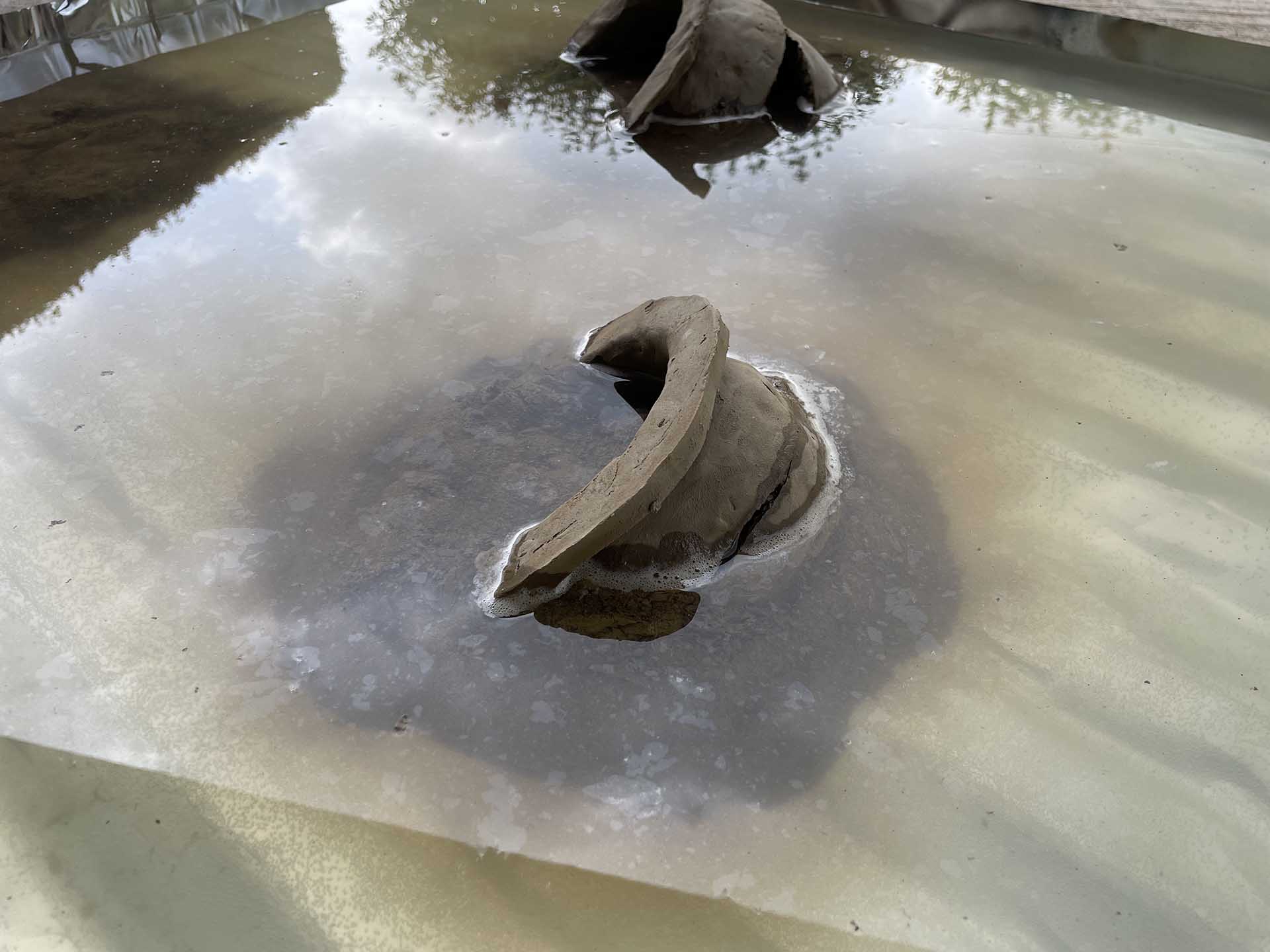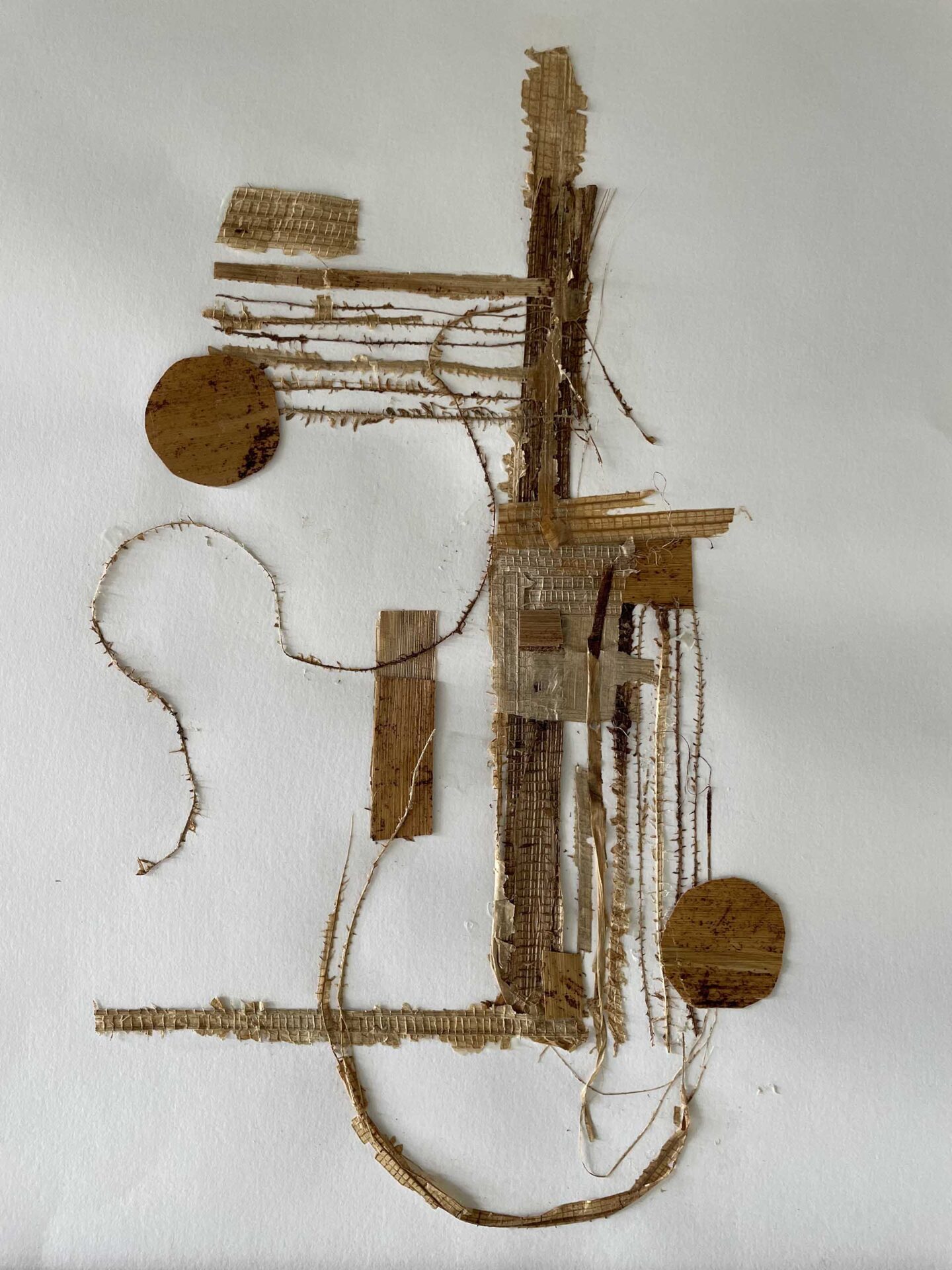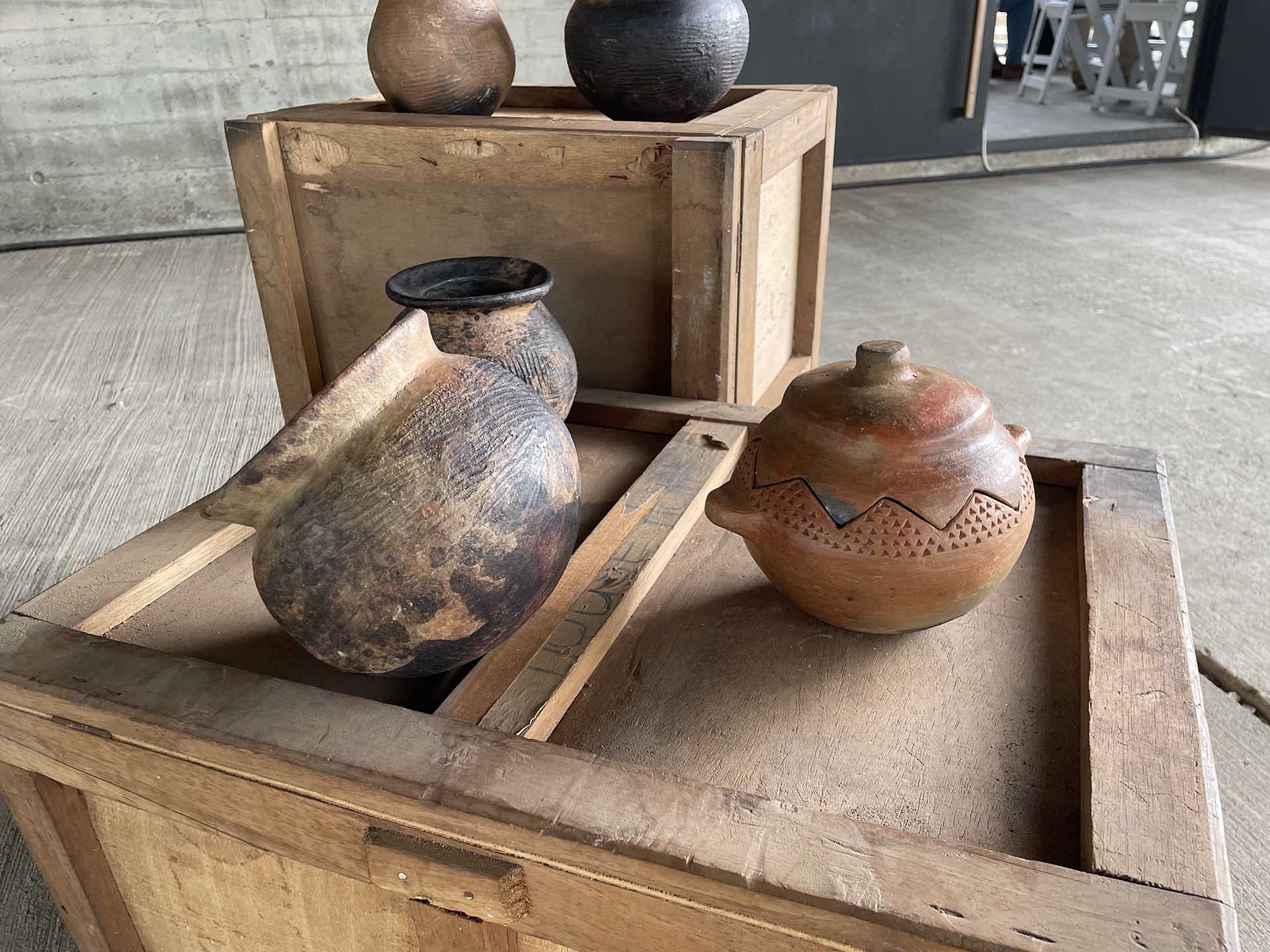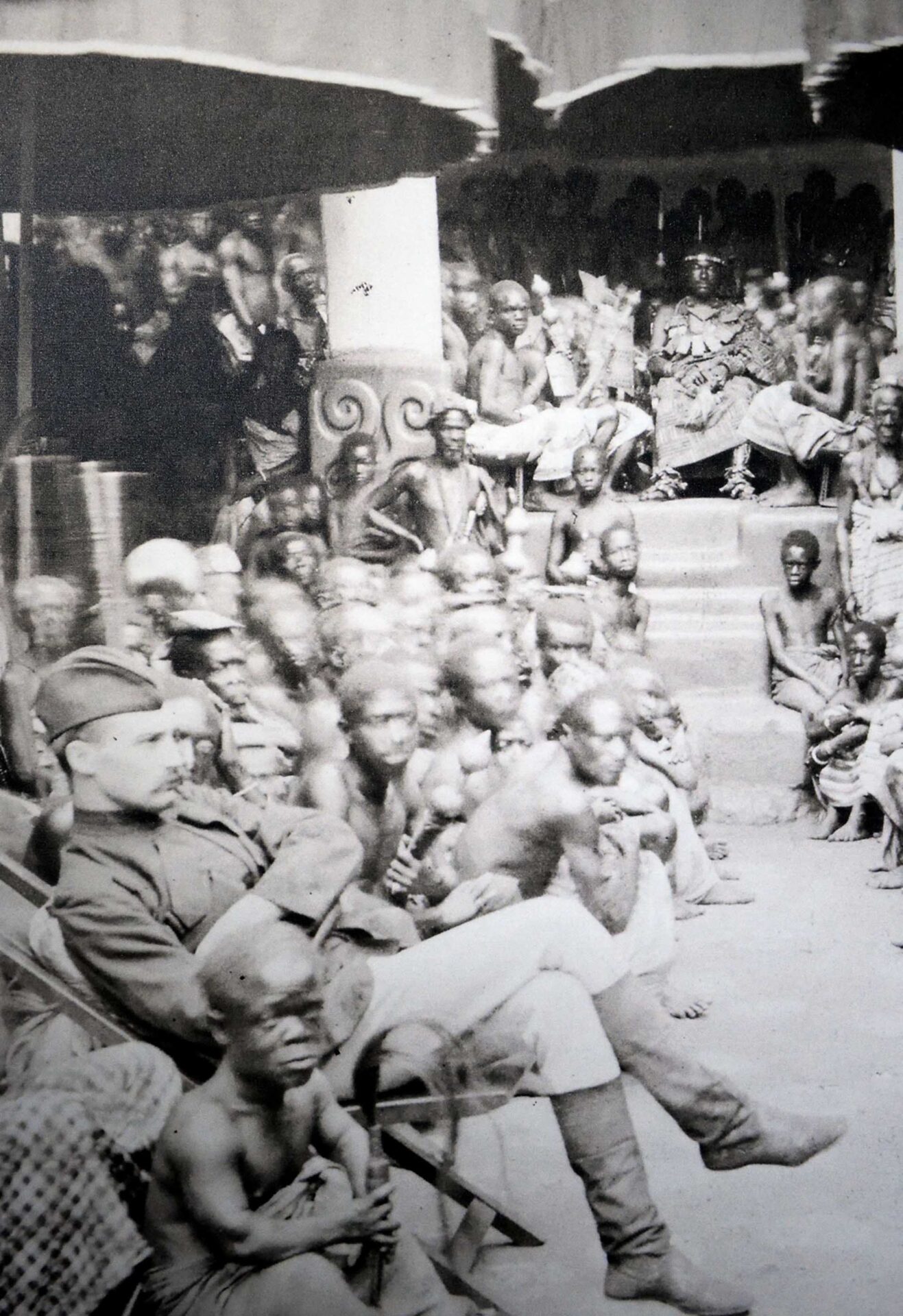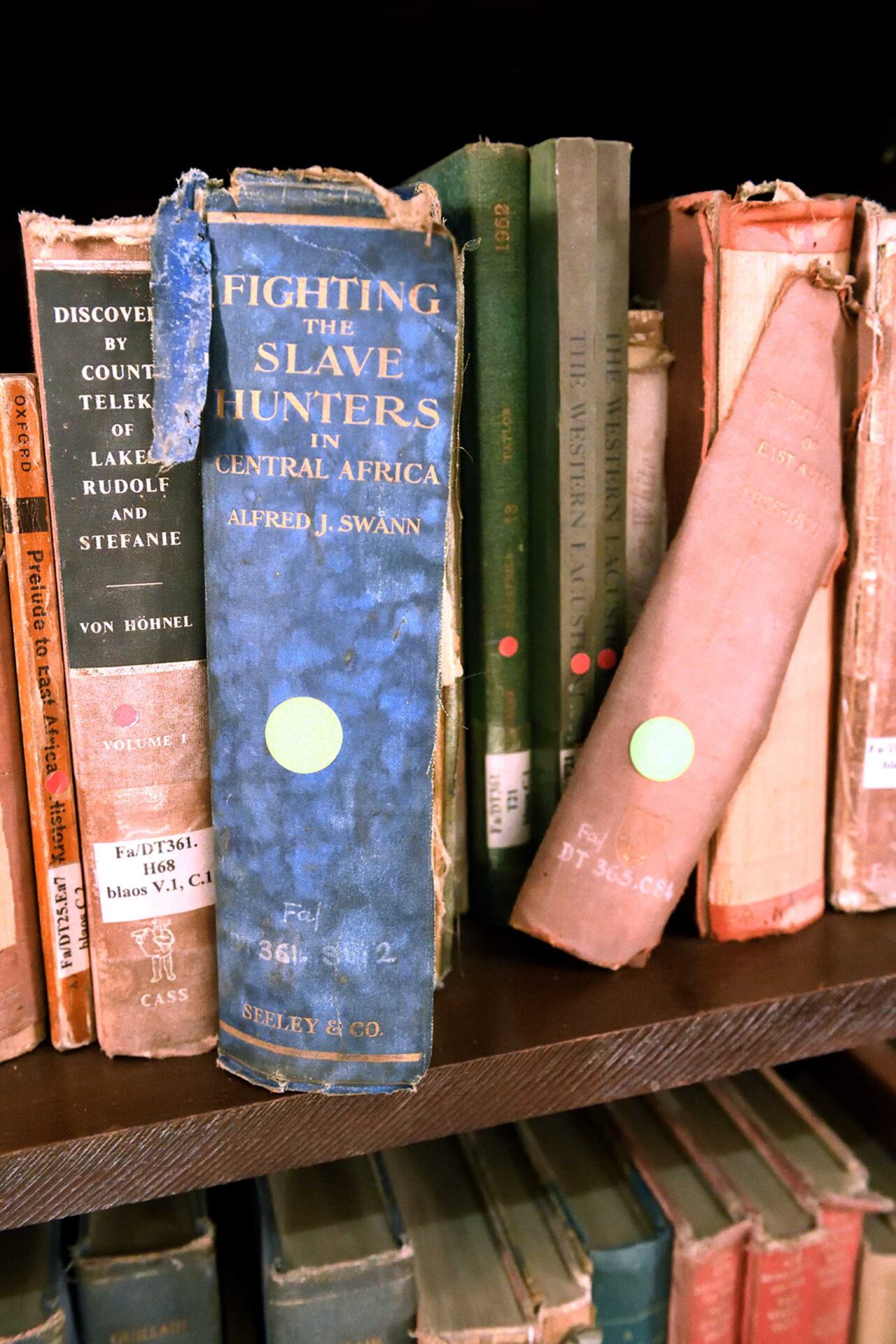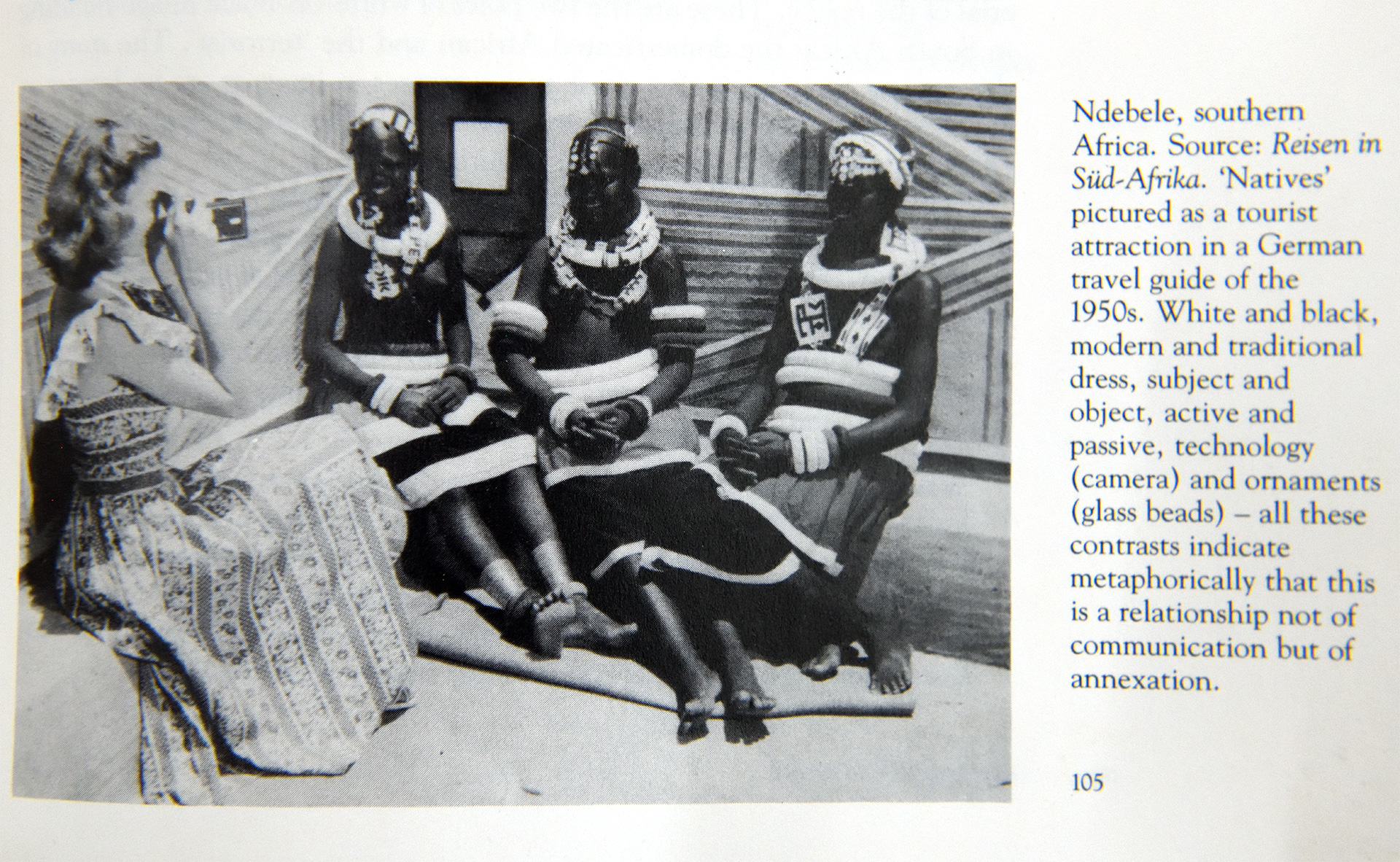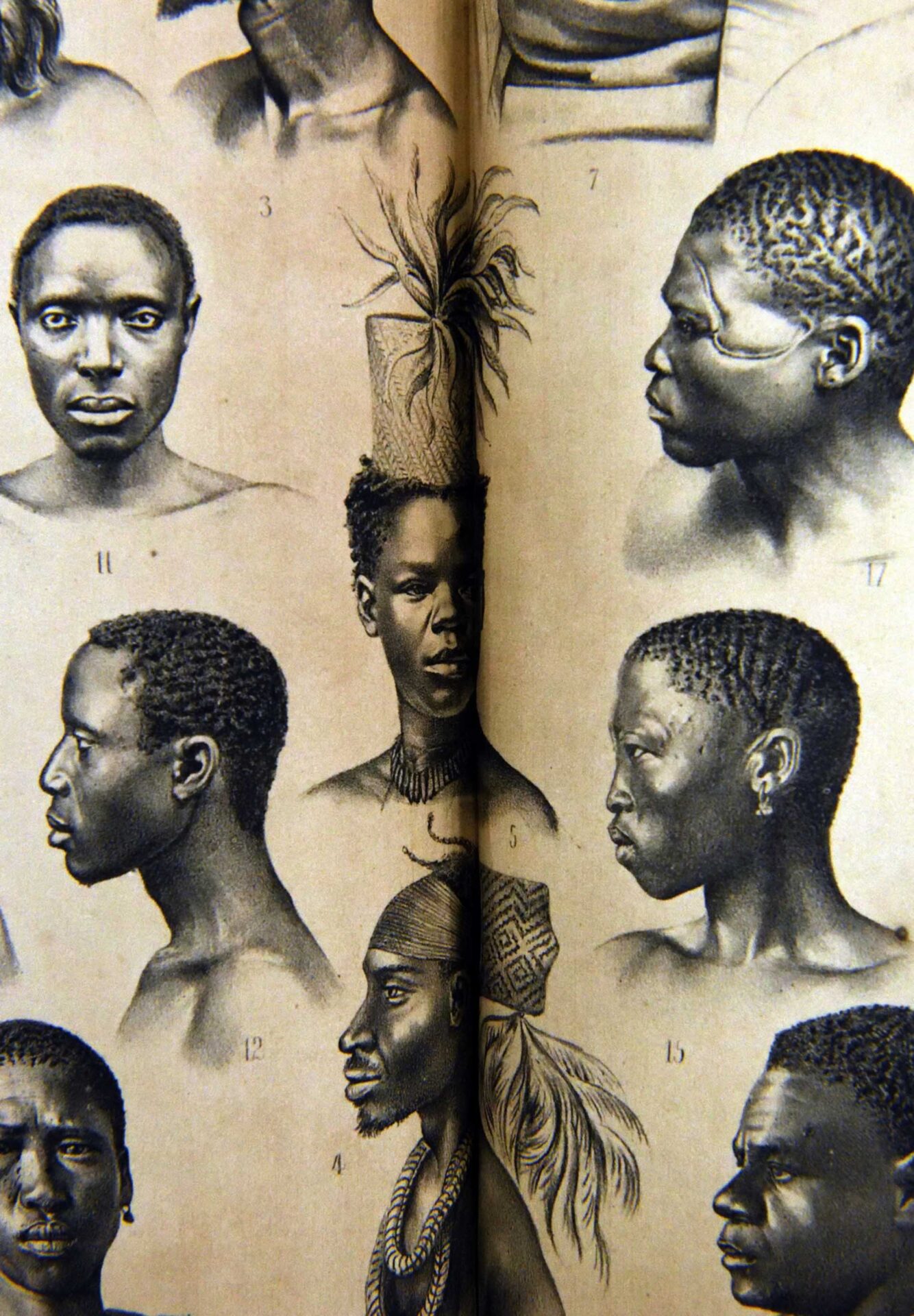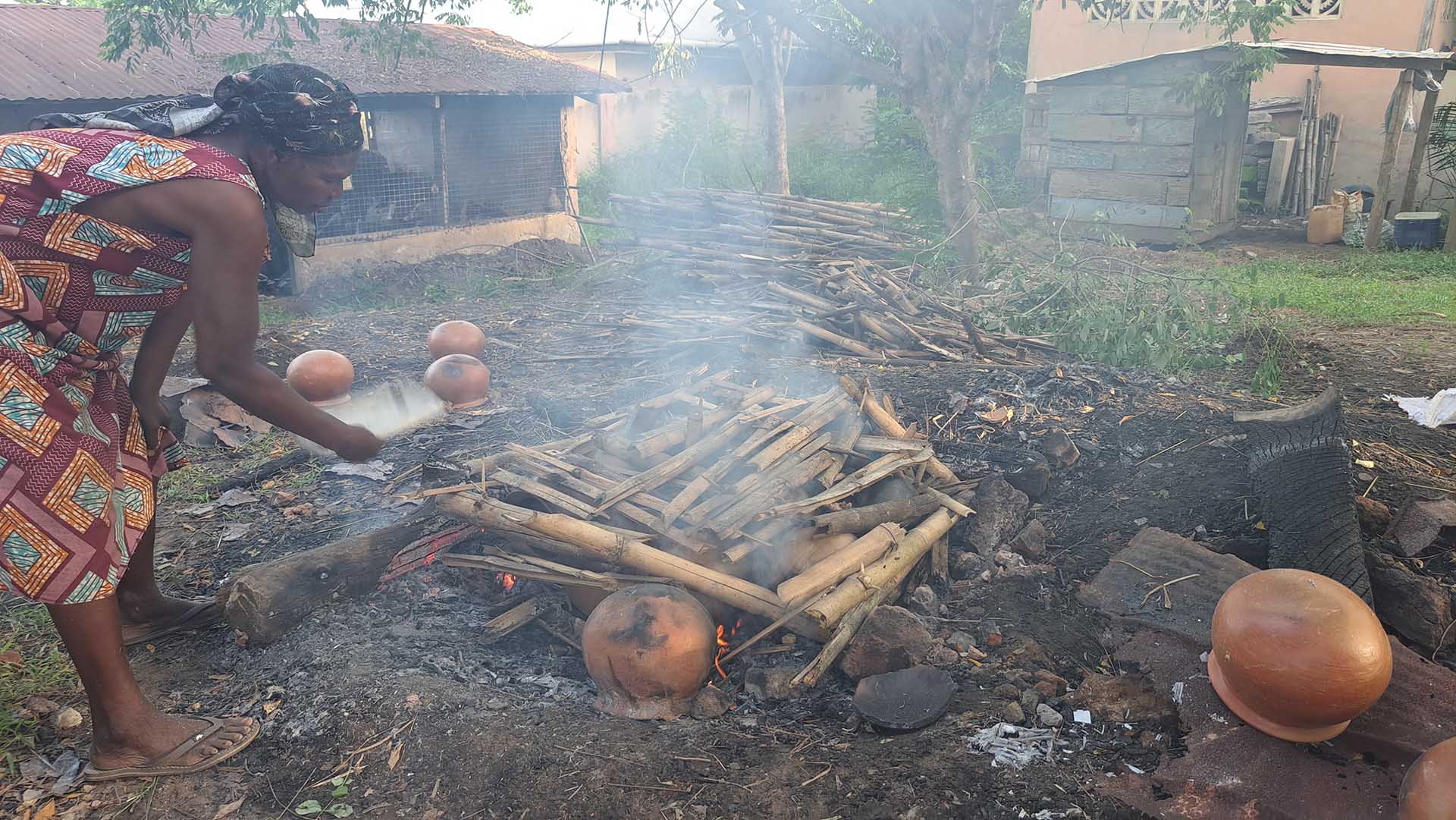
Gloria Oyarzabal and Nicolas Kyrillou in residency at Nubuke Foundation
A Reflection on Gloria Oyarzabal’s Residency at Nubuke Foundation.
Gloria Oyarzabal’s residency at Nubuke Foundation focused on research, deep listening and photography, exploring Ghana’s colonial legacy within academic and cultural institutions. She conducted research at the University of Ghana’s Balme Library, investigating inherited colonial knowledge, and visited museums such as Manhyia and the National Museum to study cultural restitution, specifically the Ashanti regalia’s “loan” from the British. Her fieldwork also involved visits to Nkyinkyim Museum, brass jewellers still practicing ancestral Akan techniques, and Ntonso Village, where she observed and participated in a Kente printing workshop featuring Adinkra symbols. Additionally, she explored African heritage and colonial photography at Deo Gratias Photo Studio.
Gloria expressed immense gratitude for the support she received from Nubuke Foundation, describing her experience as professionally enriching and personally transformative. She praised the team for their care, facilitation, and love, which greatly enhanced her work. She also acknowledged the invaluable discussions with key figures like Allotey Bruce Konuah (curator and archivist), Sela Adjei (academic and researcher), Kate Tamakloe (manager of Deo Gratias Studio), and Ivor Agyeman Dua (historian and descendant of a deposed Ashanti King). These insights expanded her understanding of decolonization, restitution, and heritage preservation.
Another important aspect for Gloria was her coexistence with her partner in residence, Nicolás Kyrillou, as it was his first time on the African continent. This experience led to many questions, which sparked long conversations that resulted in self-questioning, reflections, and debates, ultimately broadening their approach and knowledge.
A Reflection on Nicolas Kyrillou’s Residency at Nubuke Foundation.
Nicolas Kyrillou’s residency at Nubuke Foundation in Ghana allowed him to collaborate with renowned ceramicist Samuel Lovi, local women potters in Kpando (Volta Region) and Charia (Upper West Region), exploring traditional pottery’s role in post-colonial Ghana. These resource persons shared with him insights on the generational shift in pottery knowledge as younger people show less interest in the craft. They also discussed the transformation of pottery from functional to decorative in urban settings.
Nicolas learned the importance of pottery as a symbol of history and identity, shaped by colonialism and reflected on the gaps in cultural transmission. He led workshops with children from surrounding communities in Accra and Wa, using Cypriot and West African archaeological visuals to spark conversations on identity, borders and cultural interpretation. Nicolas also experimented with local clay, drawing parallels between the act of transforming earth into objects and the ongoing discussion of land, resources, and colonial history. He highlighted how objects gain cultural significance in museums and the importance of understanding their role in communities, both historically and in the present.
